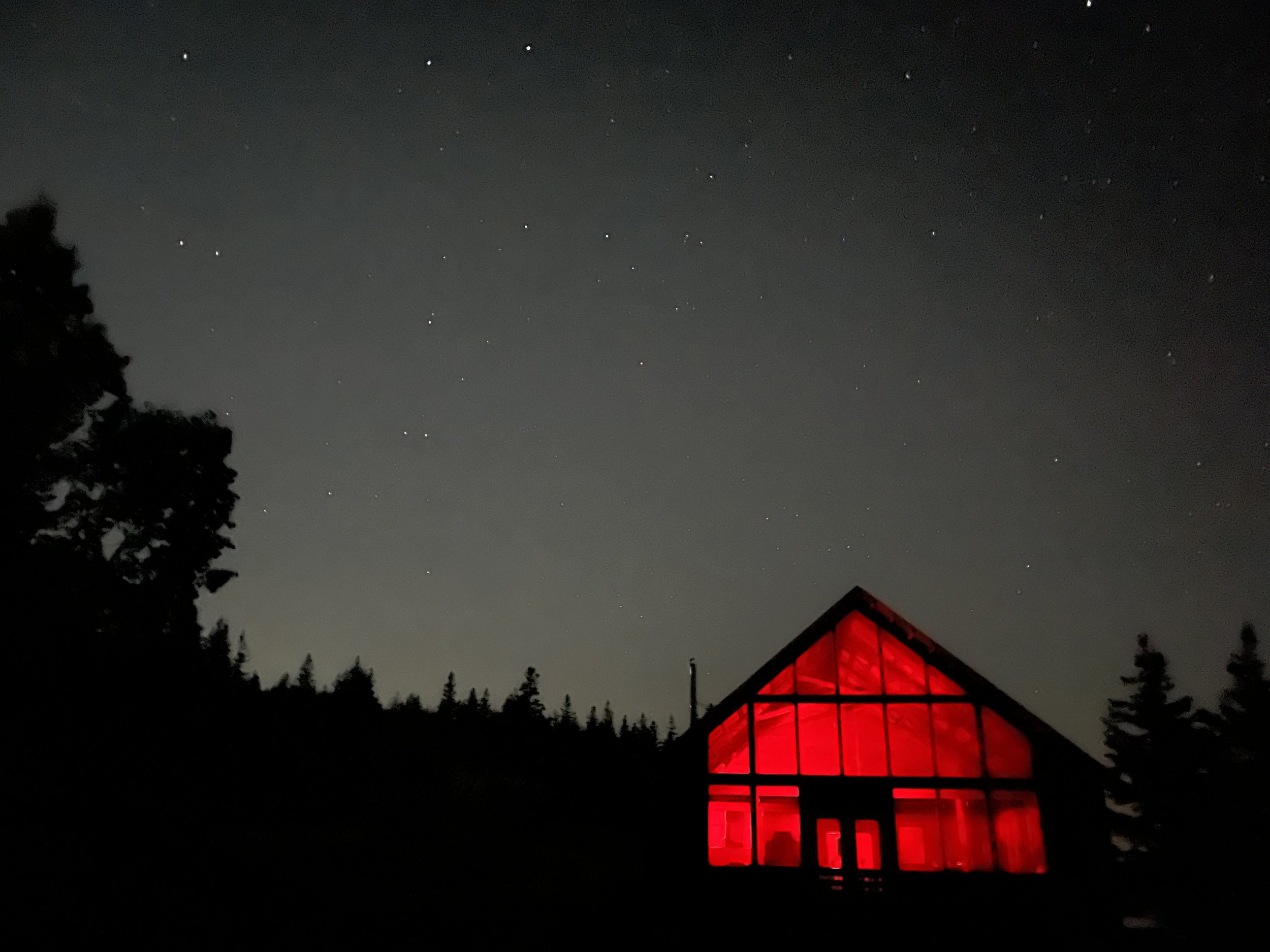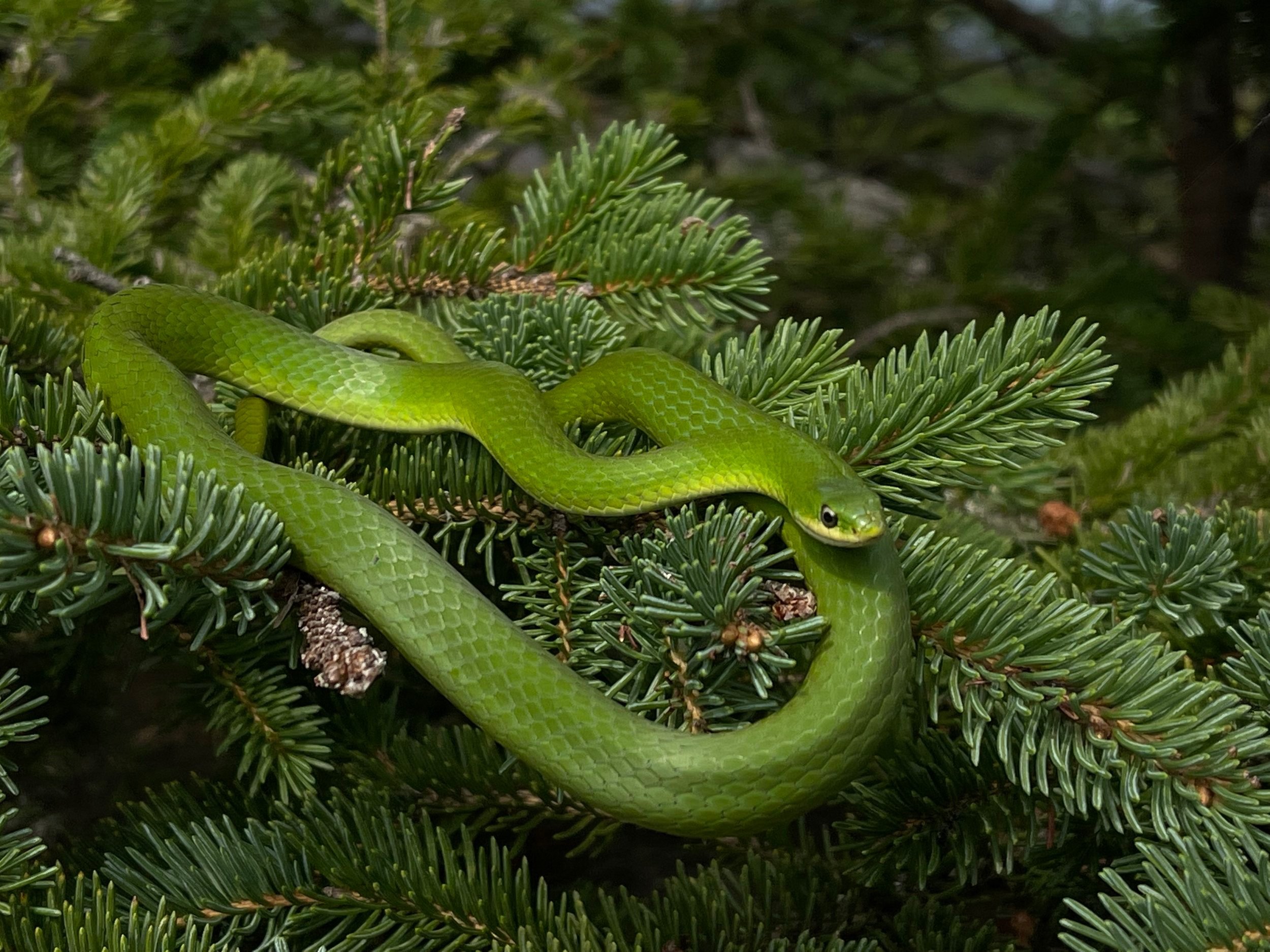By Samuel Burgess, 2021 Summer Research Intern
Sam is currently pursuing his BS in Marine Science at the University of Maine School of Marine Sciences
Sunset over Little Hurricane Island - Sam Burgess
During my ten weeks on Hurricane Island, and under the excellent direction of Phoebe Jekielek and Madison Maier, a lot of awesome science occurred! From flow meters and hydrodynamic models to gonadosomatic indices and Niskin bottles, there was never a shortage of research to be done. This doesn’t mean it was easy, though. The work our team did for the Maine eDNA program, as well as other aquaculture-related efforts, required a healthy amount of thought and preparation because of how fieldwork-heavy it was, and there were several important lessons to be learned from this.
Firstly, always plan for things to take longer than you think. An important way field work differs from lab work (which I am more accustomed to) is the flexibility required when planning excursions and samplings. There will always be something that extends the length of a trip or sample processing session, whether it be equipment malfunctions, in-situ decisions to perform additional sampling, or an exceedingly cute lumpfish that demands a photoshoot. Crucially, delays are nothing to worry about on the island! They happen constantly as a regular part of working in the field and especially around a working waterfront, so the best you can do is account for them when scheduling.
A lumpfish, found at the aquaculture site on Hurricane Island - Sam Burgess
Secondly, preparation is an essential aspect of any successful field endeavor. When you’re out on a boat sampling water, you can’t just take a stroll back to the dock house or office to grab any supplies you may have forgotten. I can’t count the number of times I forgot some small step or piece of equipment and proceeded to hinder our research for the day in the form of additional boat trips or wasted time. A good remedy for this is checklists and cheat sheets that summarize what you need to bring on a trip and what you need to do with said equipment. Staging equipment near where they’ll need to be the day before a trip will also significantly increase your preparedness.
A cute sculpin found near Two Bush - Sam Burgess
Thirdly, teamwork is required for nearly every aspect of science on a small island. Within an island community, everybody has a role to play, and nobody should try to ‘go it alone’ for most tasks. I am grateful for the level of support and teamwork presented by every member of Hurricane Island, and I understand that if each staff member did everything on their own, the island would be significantly less productive, and thoroughly less enjoyable.
Last but not least, a critical aspect of good field work is to enjoy your time outdoors! Especially in the case of Hurricane Island, you should always take time to appreciate the natural beauty that surrounds you in the field, and this will help you understand the true reasons why the research you’re performing is important to the earth. The natural world around us is a limited resource, and any time spent in its wonder should be appreciated in the moment.
In summation, performing field work on and around Hurricane Island this summer was an eye-opening experience for me, as I’m sure it will continue to be for other people for years to come.



